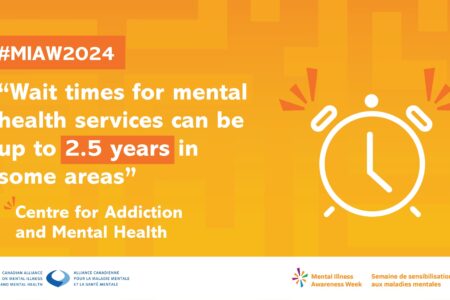Decreasing high cholesterol, LDLs or triglycerides
One of the more common imbalances I see fairly often is improper fat metabolism, which results in either high cholesterol, LDLs or triglycerides and low HDLs or low cholesterol, LDLs, triglycerides and HDLs.
Most of the fats we eat in food are in the forms of triglycerides or cholesterol. These need to be properly broken down by the body to be helpful and the right kinds and amount of fats are the key. Fat is essential, it lubricates our joints, keeps our hair shiny and skin moist, produces most of our hormones, protects our nerve and brain tissue and vital organs from trauma and temperature change, helps to send signals throughout the body, provides us with energy, insulates the body, transports Vitamin A, D, E and K and helps to regulate body temperature.
Primarily, the liver and gall bladder, along with the digestive enzymes released from the pancreas, are responsible to break fats down to the different forms to be utilized by the body.If the liver is over-whelmed with other metabolites or toxins, it will have a difficult time.
Therefore, alcohol, coffee, tea (black or green), yerba mate, rooibos, Pop or any other stimulant on a regular basis will interfere with proper metabolism of fats. Also, if the food or drinks are packaged and have dyes, preservatives, MSG, stabilizers, emulsifiers or any other chemicals, they will also compromise the breakdown. This is why you see mid-abdominal fat accumulation, if these are prevalent.
The amount of fat intake is directly related to weight. Higher consumption of fats increases body fat and obesity. Fats are the most concentrated source of food energy- more than double the calories compared to protein and carbohydrates. The typical diet contains an average of 40-50% fats, whereas, 20-25% should be the target, so, obviously, deep fried would be the worst choice of foods.
The fats that are essential for the body are the linoleic and linolenic acids, which are unsaturated fats. These are found in plants, such as sunflower, sesame, hemp, poppy, flax, pumpkin, or chia seeds, nuts, soybeans, avocado, olives and canola. They are also found in fish, especially the cold water fish such as salmon, halibut, mackerel, herring and sardines. All these oils are unstable at room temperature and will react to light and heat, so, it is better to store them in the refrigerator in dark glass to prevent rancidification. You can add a Vitamin E capsule to a bottle of flax, hemp or fish oil to prevent this from being an issue. Other unsaturated fats are peanut, corn and cottonseed, but, these are all highly sprayed crops and are not recommended as a good source of oil.
Increased essential fatty acids (known as EFAs) decrease cholesterol, triglycerides and platelet aggregation. Therefore, this decreases the risk of plaquing on the veins and arteries and optimizes the flow of blood and lymph in the body. They also promote the anti-inflammatory prostaglandins in our body to decreased blood pressure, minimize eczema or any other rashes, allergies, arthritis or any other “itis”, asthma and any other inflammatory disease. They help block arachidonic acid, another detrimental oil in animal fats that causes inflammation. Vegetarian diets and fish decrease the amount of arachidonic acid, since both compete for production of prostaglandins. Some folks have an inability to convert EFA’s, so, supplementing evening primrose oil will resolve this.
The fats that should be replaced are the saturated and hydrogenated oils. Most are the animal fats, which are hard at room temperature, such as lard, butter, cheese, cream, sour cream, ice cream or the chemical version margarine. Another is palm oil. You can easily substitute these with olive oil or coconut oil.
Coconut oil, the latest rage, is a better choice for baking, but, it is saturated, so, limited amounts are recommended. These oils increase the risk of diabetes, obesity, especially mid-abdominal weight, colon, prostate, ovarian, uterine and breast cancers, atherosclerosis and other cardiovascular diseases, eczema, as well as increasing the risk for an enlarged prostate and heavy bleeding.
They also inhibit specific enzymes that convert linoleic acid to it’s active form, so, not only are they detrimental to the body, but, they block the ability of the body to utilize the good fats. Egg yolks have often been misrepresented as being a poor source of fat, but, they contain a high percentage of lecithin, which decreases cholesterol and is used by the brain for memory, concentration and focus, as well as protect the nerve and brain cells from injury. Any oil is degraded at high temperatures, which causes lipid peroxidises that interfere with the ability of the body to utilize the essential oils and alters the structure and function of many cells of the body. Therefore, keep the oils at a low temperature when cooking.
So, here is a list of substitutes that will raise the EFA’s and lower triglycerides and LDL’s
Helpful Fats Harmful Fats
Olive oil margarine
Salmon, tuna, sardines, lean chicken, turkey beef
Beans, legumes pork
Soy, almond, oat milk cow milk
Nut, seed butters cheese
Soy, goat yogurt sour cream
Olive, canola oil cooking oil
Flax, olive oil salad oil
Coconut oil butter, lard
Soy Delicious, Rice Dream ice cream
This should give you a start to understanding the differences in fats and how to utilize them in your cooking.
Dr. Brenda Gill is a naturopath practising in Rossland, BC.

























